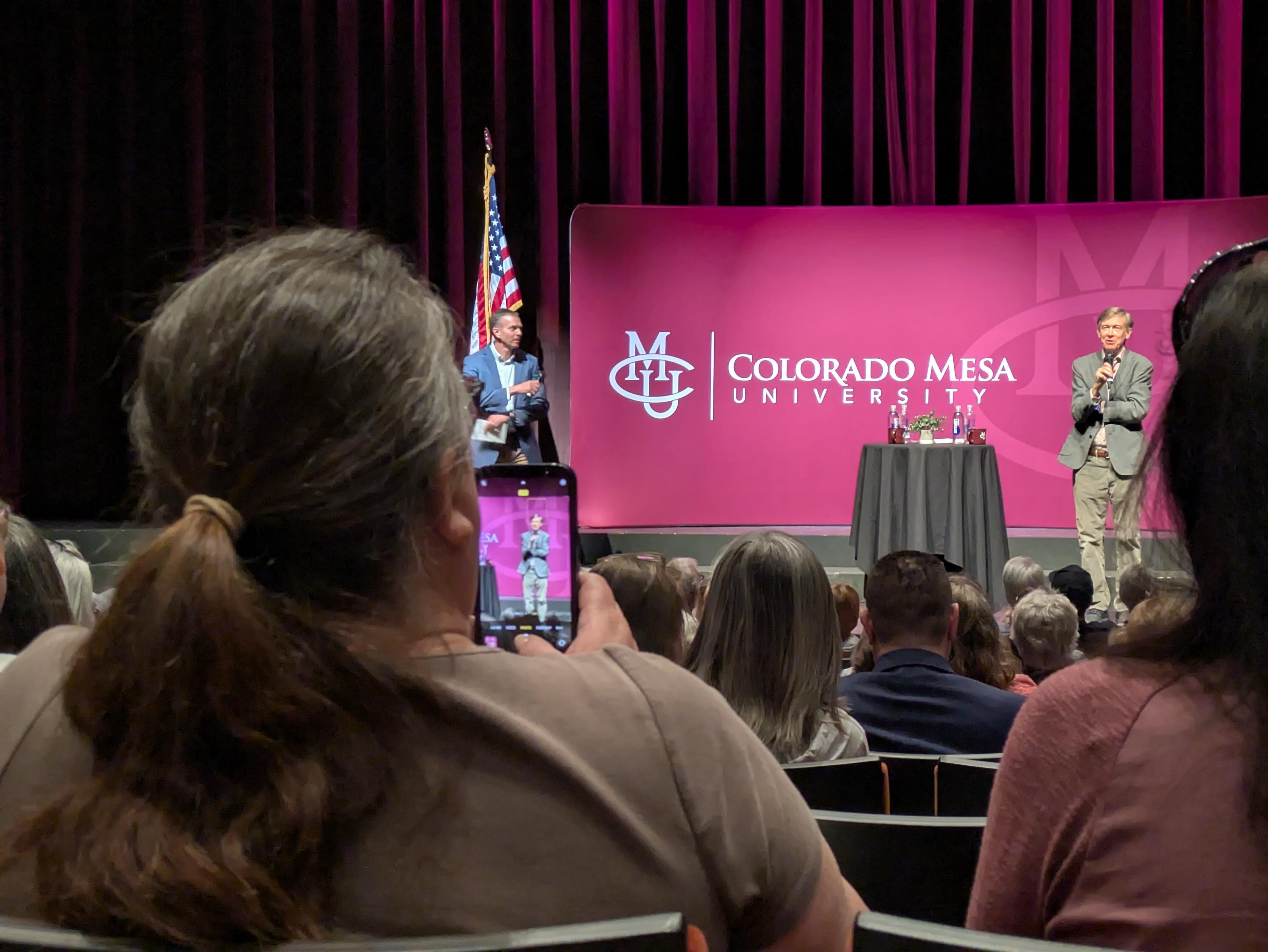
An ongoing lawsuit questioning the constitutionality of Colorado’s Taxpayer Bill of Rights was back in court Thursday, with a judicial panel hearing arguments over whether the plaintiffs can bring litigation in the first place.
The 10th U.S. Circuit Court of Appeals heard arguments over a procedural question of standing after the U.S. Supreme Court ordered the appellate court to re-examine a previous decision that favored the plaintiffs.
- Taxes, Housing And More: Your Guide To The 2016 Legislative Session
- Democrats Hope To Make Hospital Fee A TABOR Loophole
The lawsuit alleges that TABOR – the 1992 voter-approved measure that requires the state to issue tax refunds when state revenue exceeds the rate of inflation and population growth – is unconstitutional.
Former Democratic U.S. Rep. David Skaggs, an attorney for the plaintiffs, says TABOR strips lawmakers’ power to tax or spend, a responsibility that has historically been provided to them through a representative form of government.
TABOR requires the state to seek voter permission before asking for a tax increase.
“In our view, it’s unconstitutional [because] the founders were very clear in setting up a constitutional architecture in which most governmental power was to be exercised through representative institutions, not by direct democracy,” Skaggs said.
TABOR always makes for a hot-button issue in Colorado politics, but that’s especially true this year given the state’s current budget shortfall. Some budget complexities occurring at the same time – including refunds of $156 million from last year’s tax filings – may require the state to make spending cuts to areas including higher education, K-12 and transportation.
Last year, the appeals court upheld a lower court’s decision to reject the state’s motion to dismiss the case. But the case was sent back to the appellate court for reconsideration, based on a Supreme Court ruling from July having to do with an Arizona congressional redistricting case.
Voters in Arizona supported a ballot measure to create an independent, bipartisan redistricting commission. The state’s Republican-majority Legislature sued, arguing voters do not have the power to strip lawmakers’ authority to draw congressional maps. The Supreme Court disagreed.
State Solicitor General Fred Yarger, who is defending TABOR in the lawsuit, said in the Arizona case, the lawsuit came from the legislative institution, not just from a handful of lawmakers, as is the case with TABOR.
“At the very least, what [the Arizona case] said, is even in cases where power is completely taken away, not even subject to approval by the people, individual legislators do not have standing to sue,” Yarger said.
TABOR’s 35 original plaintiffs include state Sen. Andy Kerr, D-Lakewood, and four others who were lawmakers at the time of filing.
The court offered no indication as to when it would hand down its decision. Skaggs hopes he has a chance to argue the merits of the case soon.
“[Lawmakers] are now boxed in by TABOR from exercising the kind of discretion that they normally would be able to without TABOR,” Skaggs said. “The irony that didn’t come up this morning, but I think is in the back of everyone’s minds, is here we are in Colorado sending refunds back to people in relatively modest amounts, even as there are crying unmet needs for the state.”









